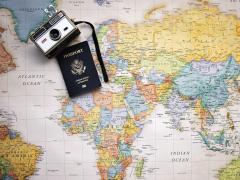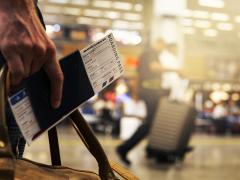The ‘South African strain’, as new mutations of COVID-19 are often referred to, has cut us off from the world, as country after country introduce bans on travellers originating from South Africa to stave off infections of the new variant.
Ceo of the Alliance of South African Independent Practitioners Associations (Asaipa), Dr Unben Pillay, talks to Travel News about the cutting-edge medical research taking place in South Africa on COVID-19 mutations, the effectiveness of existing vaccinations in fighting the new strain and how the travel industry will be affected by this evidence.
It is in the nature of a virus to mutate and the new COVID-19 strains are certainly not unique to South Africa. This can be proved as they have cropped up in rural villages in multiple countries, infecting people with no previous travel history. As such, I prefer to refer to them as ‘new variants’ rather than ‘the South African strain’. Regardless, the new strain was first identified in South Africa, and the cutting-edge research taking place here is leading the world in its understanding of how COVID-19 mutates. This research indicates that the new variants are not only more infectious but also far more deadly than the original strain, and are therefore of concern to the global community.
It's a double-edged sword for South Africa, as our early detection of the mutation has resulted in politicians implementing knee-jerk travel bans against us, which is damaging for our travel industry and economy as a whole.
Unfortunately, the new research emerging indicates that the situation will not improve in the short term, as studies show that some of the COVID-19 vaccines are not effective in preventing infection from the new mutation. For example, the latest research shows that the AstraZeneca vaccine is only 20% effective against the new variant, while the Johnson & Johnson vaccine is 85% effective in preventing severe disease from new variants. There is also little evidence at this stage about how the Pfizer and Moderna vaccines fare against the new variant. Therefore, we still do not have sufficient evidence to enable all vaccinated people to move about freely without fear of infection, and it is still too early for governments around the world to relax lockdown regulations, even for vaccinated travellers.
International travel had been reopening prior to the discovery of the new variant, with many countries implementing what became a standard requirement – passengers were to produce a negative PCR test taken less than 72 hours before flight departure. Now, countries no longer consider this sufficient evidence to prevent COVID-19-positive travellers from entering their country. This does not relate to a PCR test’s ability to pick up all strains of the virus, which it is successfully able to do, but rather to the high level of false negative results that PCR tests produce. Research has shown that 25% to 30% of PCR tests show false negative results, which means that, despite all travellers on an aircraft holding a negative PCR certificate, there is a high likelihood that a number of these travellers may still be infected with the virus.
It is a difficult situation and hard to find the right balance between protecting lives and livelihoods, but based on the latest scientific research emerging on COVID-19 mutations, vaccine effectiveness and on the accuracy of PCR test results, it is unlikely that governments will relax travel regulations in the short-term, as no fool-proof solution has yet emerged on how to allow travel to safely take place.













